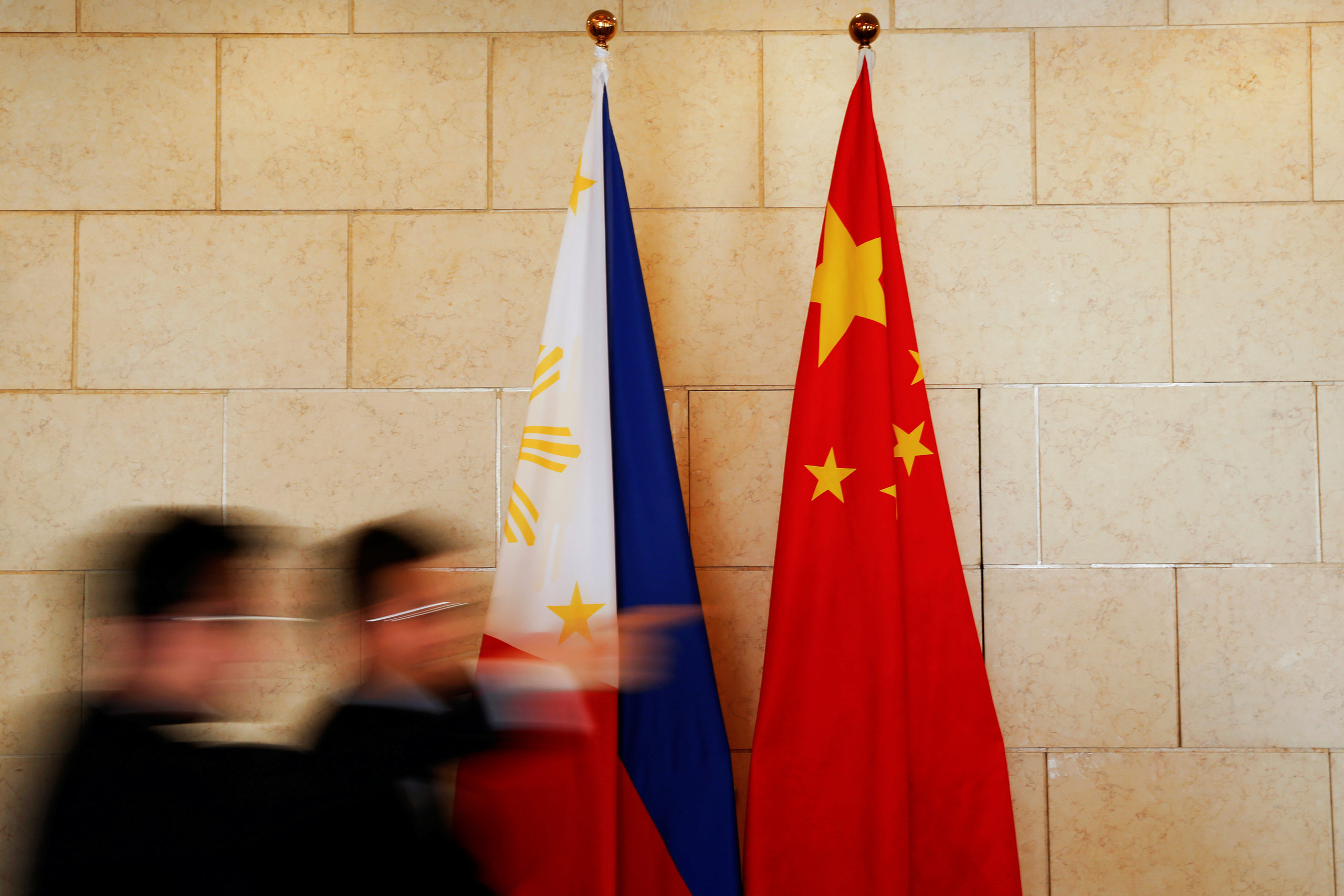Joint exploration with China poses constitutional issues, says Hontiveros

National flags are placed outside a room where Philippine Finance Secretary Carlos Dominguez and China’s Commerce Minister Gao Hucheng address reporters after their meeting in Beijing, China, January 23, 2017. REUTERS/Damir Sagolj/Files
MANILA, Philippines — Pursuing joint explorations with China for resources will raise constitutional issues, Senator Risa Hontiveros said Sunday.
This came after the President Ferdinand Marcos Jr.’s administration expressed its plans to pursue a joint exploration with China in the South China Sea, including the highly disputed West Philippine Sea — which the Philippines has sovereignty over.
“It raises serious constitutional issues regarding the legality of the Tripartite Agreement for Joint Marine Seismic Undertaking (JMSU) between the China National Offshore Oil Corporation (CNOOC), Vietnam Oil and Gas Corporation (PETROVIETNAM), and the Philippine National Oil Company (PNOC),”
“Of course, the decision is not yet final, but whatever the final outcome of the case is, the Court’s opinion on the matter should be respected,” she added.
Hontiveros was referring to a recent Supreme Court decision which ultimately declared void and unconstitutional a 2005 agreement that allowed China and Vietnam to conduct a joint exploration with the Philippines for oil resources in areas under the country’s jurisdiction in the West Philippine Sea.
Article continues after this advertisementREAD: SC voids 2005 oil search deal; ruling lauded as ‘a warning to Marcos’
Hontiveros then admitted that the said decision will affect the country’s plans to address its energy crisis, but explained that it did so to “to ensure that the government safeguards the patrimony of our people; that our country’s future well-being is not made subject to the expediencies of the present day.”
Article continues after this advertisementTo recall, the Malampaya natural gas fields, which supply 30 percent of Luzon’s energy consumption, are expected to be depleted by 2024.
“It moves the timetable back, for sure. But the constitutional provision that reserves the exploration, development, and utilization of natural resources to Filipino citizens, or corporations or associations at least sixty (60%) percent of whose capital is owned by such citizens is there to ensure that the government safeguards the patrimony of our people; that our country’s future well-being is not made subject to the expediencies of the present day,” said Hontiveros.
“At the very least, this forces the government to proceed prudently by, among others, choosing its partners carefully,” she added.
Time to rethink EPIRA; move with renewable energy
When asked what the government can do to address the energy crisis, Hontiveros explained that it may be time to reassess the Electric Power Industry Reform Act of 2001 and to opt for renewable energy instead.
“As stated by the DOE, and I whole-heartedly agree with this, the development and optimal use of the country’s renewable energy resources is central to the Philippine’s sustainable energy agenda,” said Hontiveros.
“Renewable energy is an essential part of the country’s low emissions development strategy and is vital to addressing the challenges of climate change, energy security, and access to energy,” she added.
Meanwhile, Hontiveros said that she has not proposed any bills filed for the purpose of amending the country’s constitution to allow the joint exploration of South China Sea and WPS, but vowed to “seriously consider the merit of any bills filed for this purpose.”
It can be recalled that the Philippines has already validated its sovereign rights in the West Philippine Sea following the decision of the Permanent Court of Arbitration to invalidate China’s nine-dash line claim in the maritime area.
China, however, has consistently refused to recognize the ruling, continuing to insist that their country owned the area, ignoring a series of protests and demands made by the Philippine government for Chinese vessels to leave the West Philippine Sea.